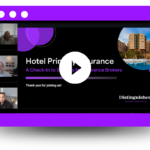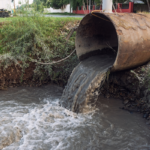When Do I Need Vacant Building Insurance?
Homes become vacant for a number of reasons. A house may be up for sale and the sellers have already moved, or the home is an investment property and it’s taking longer to find tenants. Standard homeowners insurance policies include a vacancy clause which eliminates and/or restricts coverage for losses on property that is vacant for a specified period of time – typically 30 or 60 days. This is where Vacant Building insurance steps in.
Vacant Building or Unoccupied Building insurance provides coverage for single-family dwellings, multi-family housing, and commercial structures that remain vacant for three-, six- or 12-month terms, depending on the type of policy purchased. A single-family home must be 100% unoccupied for Vacant Building insurance to apply. Other types of properties must be no more than 30% occupied to be eligible for coverage.
Why Buy Vacant Building Insurance?
While there are many reasons to purchase vacant building insurance, the top reasons include:
- Increased susceptibility to having leaks or water damage that goes unnoticed and develops into significant damage
- Increased risk of theft and vandalism. Appliances and copper pipes are most at risk of theft when no one is around
- Invitation for squatters and susceptible to arson.
- Increased risk of liability losses in the event where someone passing by the property gets injured and the owner is found to be negligent
Without Unoccupied building insurance, these and other exposures would not be covered. This coverage protects against fire, explosion, lightning, smoke, theft, vandalism, leaking pipes and other hazards. It can also be designed to provide Liability insurance.
Reduce Risk
It’s important for insureds of vacant properties to take precautions to protect their properties in addition to purchasing the right type of insurance. This includes:
- Shutting the water off and draining the pipes to avoid freezing if the property is to remain vacant for an extended period. For undrained lines, maintain the heat to 55 degrees or install water sensors
- Turning off all utilities, including gas
- Using dehumidifiers to make interior conditions less conducive to mold in the summertime
- Monitoring smoke alarms and using a fire alarm system that is connected to a central station
- Monitoring and inspecting the property often
- Closing and locking the doors, windows, and other openings
- Removing any items of value from the home to reduce the risk of theft
Distinguished offers a Vacant Building insurance solution for several types of properties, with limits up to $5 million. For properties under renovation, you can also provide clients with our Builder’s Risk program.





